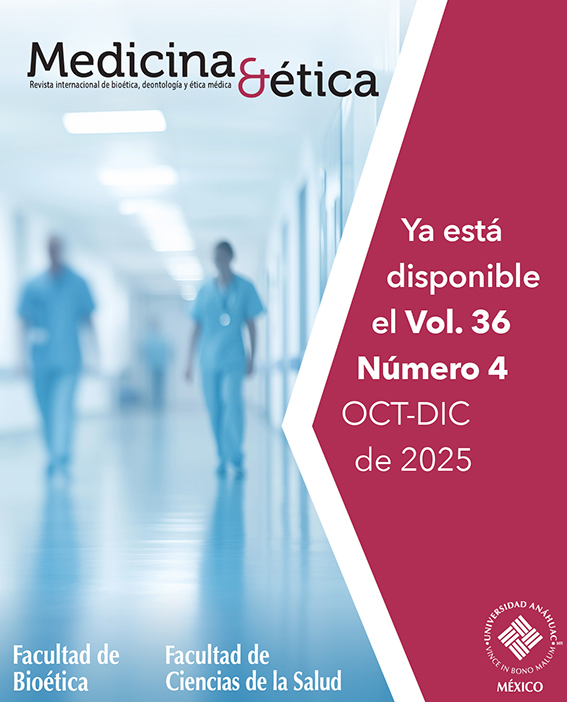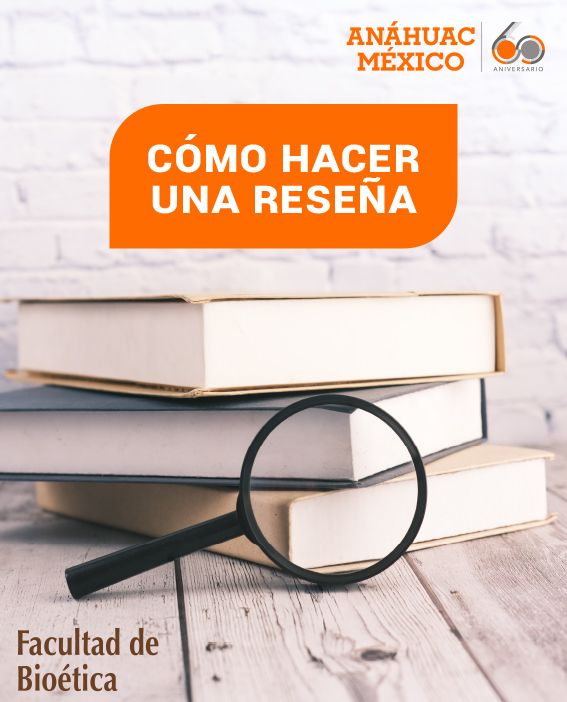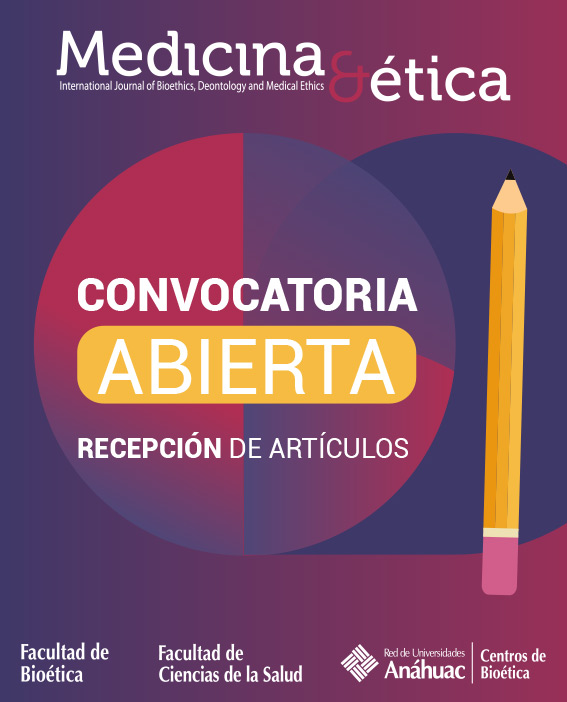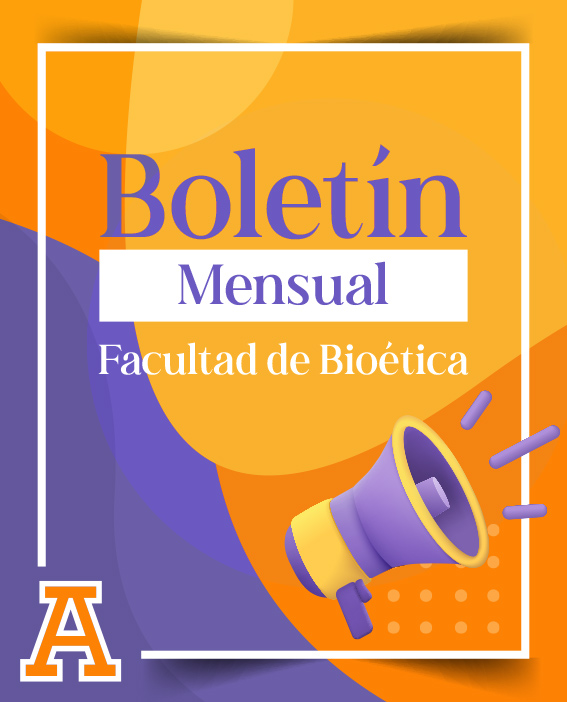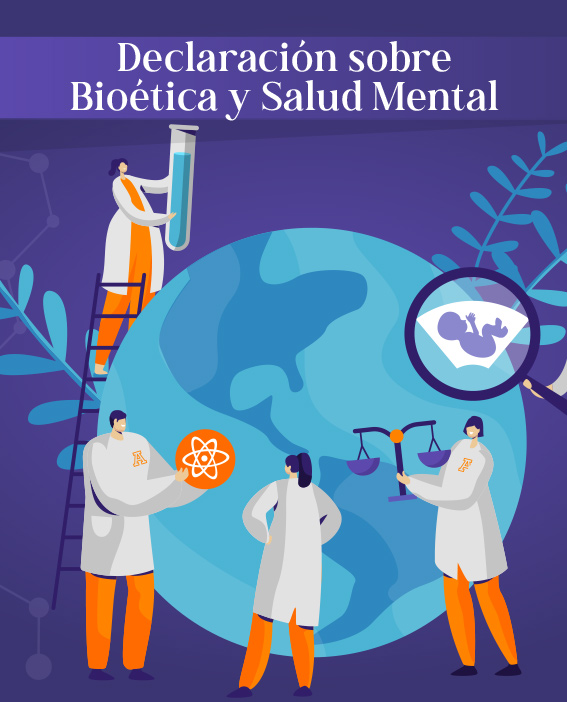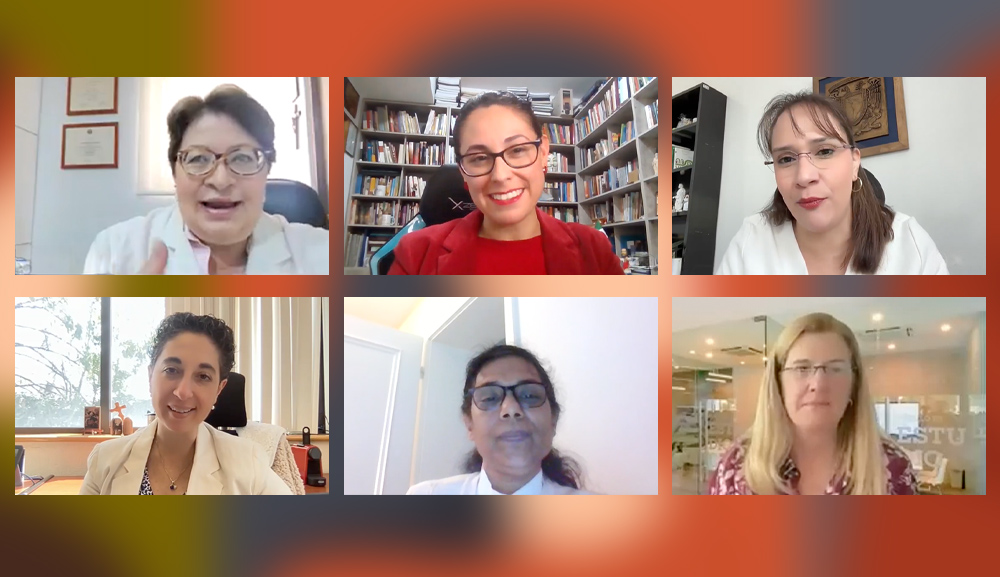
During the forum “Bioethics through the perspective of women” various questions were addressed that invited us to reflect on the intersection between bioethics and the experience of being a woman.
On March 19, 2024, to commemorate International Women's Day, our School of Bioethics held the forum titled "Bioethics through the perspective of women."
This academic space included the participation of Dr. Martha Tarasco, academic at the School of Bioethics and member of the Editorial Board of the journal Medicina y Ética; Dr. Karina Ordóñez, academic coordinator of the Bioethics Institute of the Finis Terrae University; Dr. Jennifer Hincapié, director of the University Bioethics Program at the National Autonomous University of Mexico (UNAM), and Dr. Selma Fernández, psychologist and bioethics consultant.
The forum was structured in two rounds of questions addressed to the speakers with the aim of each one expressing their point of view. The first round began with the questions: How have you experienced bioethics since you are a woman? What do you think has marked you about all the topics of bioethics? And what does it mean for you to be bioethicists?
Dr. Tarasco shared that bioethics helped her properly understand the concepts of person and human conscience, and be a more understanding person with individual errors and those of others. Dr. Ordóñez believed that bioethics is a science whose study is highly rewarding, that the interdisciplinary perspective it provides is one of the most exciting elements it has and that being a bioethicist implies taking into account the importance of this interdisciplinarity.
In addition, she commented on the relationship that exists between the study of life seen from bioethics and the experience of being a mother and woman. Dr. Hincapié addressed the practical applicability of bioethics to elements of daily life, especially in the professional field. Finally, Dr. Fernández shared how bioethics allows women to be valued equally and not to be seen as an object, but as a worthy person.
To begin the second round, the question that was addressed was the following: Where should bioethics go in the future for women? In this regard, Dr. Fernández opined that bioethics and psychology can work together to implement educational programs aimed at women, focused on their physical and emotional health that allow them to have an education based on ethical values.
Dr. Hincapié believed that bioethics has a responsibility to society to be more accessible and share its knowledge with all people, promoting justice in access to scientific development and benefit. For her part, Dr. Ordóñez commented that bioethics has the obligation to generate a contribution and advance for women in issues such as the wage gap, the inclusion of more women in scientific fields, the literacy of women and girls in vulnerable situations, the fight against violence against women, among other topics.
Finally, Dr. Tarasco emphasized the importance of the bioethical principle of justice, and stated that every woman is capable of getting where she wants despite her vulnerability, since she has multiple clearly feminine capacities that allow her to be a highly competent person .
The forum concluded with a few words of gratitude to the speakers from Dr. María Elizabeth de los Rios Uriarte, professor and holder of the Chair of Clinical Bioethics, and Dr. María Inés Girault Ruiz, coordinator of the Programs in Bioethics, where the importance of creating events of this type was emphasized to open spaces where bioethics can be reflected on from the female perspective, in addition to promoting dialogue and the scientific and humanistic enrichment of the University Community.
Enjoy the full session:
Más información:
MPSS Inés Marquina
MPSS Marcial Cabrera
Facultad de Bioética
bioética@anahuac.mx

